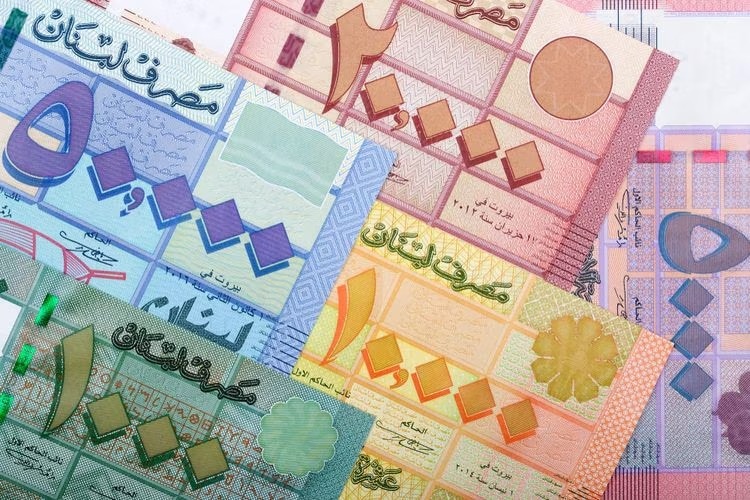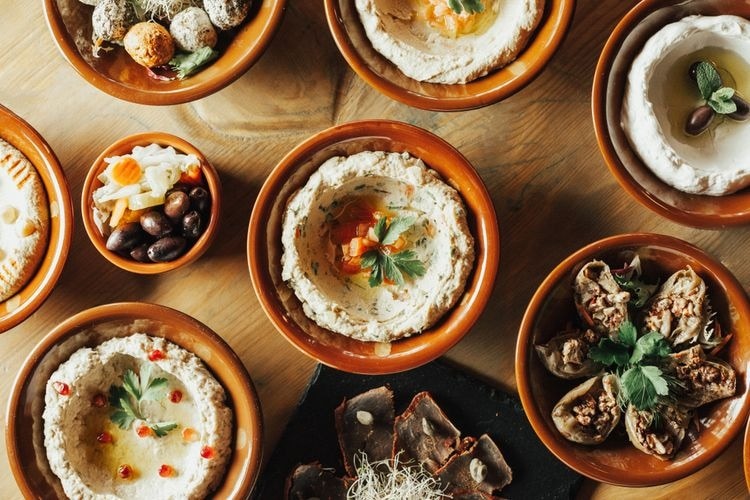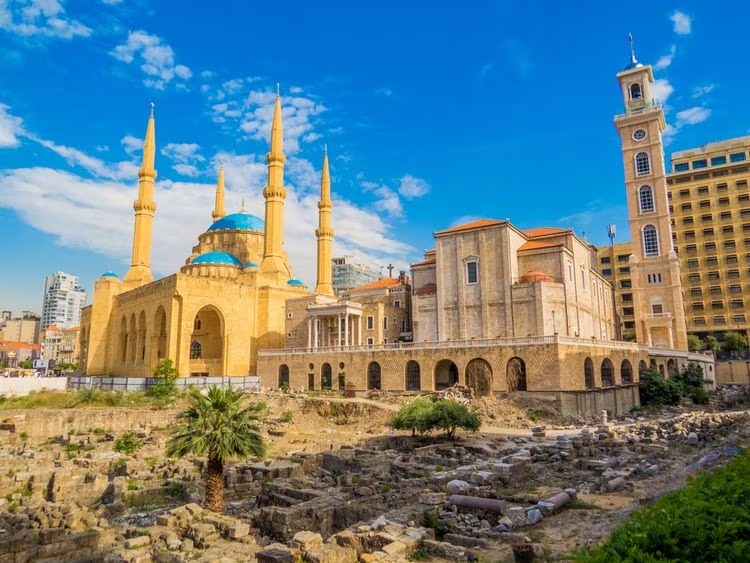Lebanon Travel Tips and Information

Origin of Image source: istockphoto.com
Official Name
Republic of Lebanon
Capital
Beirut
Population
Country Code
6 million
LB
Country Code (international calls)
+961
The flight time to Lebanon is approximately ---- hours. Check the climate, currency, religion, manners, other information of Lebanon below. Wishing you pleasant travels to Lebanon.
Lebanon is a small country in the Middle East, situated on the coast of Mediterranean Sea.
Local Climate / Weather
Lebanon offers a diverse climate that ranges from a Mediterranean feel on the coast to a cooler mountainous atmosphere inland, providing unique experiences each season. Summer (June to September) brings warm, dry weather to coastal areas, with temperatures averaging 30°C, perfect for beach activities. In contrast, the mountainous regions provide refreshing escapes from the heat, making it an ideal time for outdoor enthusiasts. Winter (December to February) brings cooler temperatures, averaging 10°C in Beirut but often dropping below freezing in mountain regions, where snowfall makes it a popular destination for skiing. ・Summer (June - September): This is the best time for beach lovers, as the Mediterranean coast is warm and vibrant, with festivals and beach clubs in full swing. Pack light clothing, sun protection, and prepare for lively nightlife scenes. ・Autumn (October - November): This season is ideal for those looking to explore Lebanon’s cultural sites without the summer crowds. Temperatures are pleasant, and landscapes are colorful, making it perfect for sightseeing and hiking. ・Winter (December - February): Travelers interested in winter sports should visit Lebanon's mountainous areas, as they offer skiing and snowboarding. Make sure to bring warm clothing, as temperatures can drop significantly. ・Spring (March - May): With mild temperatures and blooming flowers, spring is perfect for outdoor activities, such as hiking in Lebanon’s nature reserves and visiting the vineyards in the Bekaa Valley.
Currency & Tipping
Currency
For travelers visiting Lebanon, understanding the local currency and tipping practices is essential. The official currency of Lebanon is the Lebanese Pound (LBP), but the US Dollar (USD) is also widely accepted in urban areas. It’s advisable to carry a mix of both currencies for convenience, especially in local markets and smaller establishments where LBP is preferred. ATMs are common in major cities, allowing easy currency exchange, though it’s best to check with your bank for international fees.
Tipping
Tipping in Lebanon is a common practice, particularly in restaurants, cafes, and for services like taxis. A tip of 10-15% of the bill is customary in restaurants if service isn’t already included, while rounding up the fare is appreciated for taxi drivers. In hotels, it’s polite to tip porters and housekeeping staff as a gesture of appreciation. Understanding these practices will help travelers feel more at ease and respectful of local customs, ensuring a smooth and enjoyable experience.
Useful Travel Information

Voltage & Electrical Outlets
In Lebanon, the standard voltage is 220V, with a frequency of 50Hz. Outlets typically use the European-style plug types C and D, so travelers should bring an adapter if their devices use different plugs. Most modern gadgets, like smartphones and laptops, are compatible with dual voltages, but it’s always wise to double-check compatibility to avoid any power issues during the trip.

Internet Connectivity
Lebanon offers good internet coverage, particularly in urban areas, making it easy for travelers to stay connected. Major local mobile carriers include Touch and Alfa, both providing SIM cards with affordable data packages suitable for short-term use. Internet speeds are generally reliable in main cities, and many hotels, cafes, and restaurants provide free Wi-Fi access, helping travelers avoid high roaming charges. For those staying longer, purchasing a local SIM card with a data plan can be cost-effective and convenient.
Water for Consumption (Drinking Water)
The tap water quality in Lebanon varies by region. While tap water is generally safe in some areas, it is advisable for travelers to drink bottled water, especially if they are sensitive to changes in water sources. Bottled water is widely available in supermarkets, convenience stores, and restaurants. For brushing teeth or making hot beverages, using tap water is typically safe, but for drinking, bottled options are recommended.
Culture, Religion & Social Etiquette
Culture
Lebanon is a country known for its rich history, diverse heritage, and vibrant traditions, influenced by ancient civilizations and modern cultural exchanges. Lebanese culture places a strong emphasis on family, hospitality, and respect for elders. Traditional Lebanese events and festivals, like Eid al-Fitr, Eid al-Adha, and Independence Day, are celebrated with enthusiasm, offering travelers a chance to witness authentic customs. Lebanese music, dance (especially the Dabke), and art reflect the country's diverse influences, from Arab and Mediterranean roots to French and Western touches, which add a unique flavor to local celebrations and gatherings.
Religion
Religion plays a significant role in Lebanon’s social and cultural fabric, with Islam and Christianity being the major faiths. The Muslim population is divided between Sunni and Shia groups, while the Christian community is primarily Maronite, with Orthodox and other denominations as well. Lebanese people value religious diversity, and there are many prominent religious sites, such as the Mohammad Al-Amin Mosque and the St. George Maronite Cathedral. Respect for religious customs, such as modest dressing when visiting places of worship and observing prayer times, will enrich the experience for travelers while demonstrating cultural sensitivity.
Social Etiquette
Lebanese etiquette emphasizes respect and politeness, especially in social settings. When meeting someone, a handshake with direct eye contact is customary, although close friends or family may exchange kisses on the cheek. Lebanese people value hospitality, and guests are often offered food and drink generously. Accepting these offerings and expressing appreciation is a sign of respect. It's also polite to dress modestly, particularly when visiting religious sites or rural areas. When dining, waiting for the host to start the meal and eating with the right hand are appreciated gestures. Following these manners will help travelers integrate smoothly into Lebanese social life, enhancing their travel experience in the country. These insights will help travelers understand Lebanon’s social norms and deepen their appreciation of the country's culture, fostering meaningful and respectful interactions.
Food Culture
Lebanese cuisine is a vibrant and aromatic blend of Mediterranean and Middle Eastern flavors that travelers will find both unique and familiar. Known for its emphasis on fresh ingredients, aromatic spices, and healthy dishes, Lebanese food showcases a variety of grilled meats, fresh vegetables, legumes, and distinctive herbs. One of the staples of Lebanese dining is the mezze, a spread of small dishes that includes favorites like hummus, tabbouleh, and baba ghanoush, offering travelers an opportunity to sample multiple flavors in one sitting. For those interested in street food, Lebanese cities are bustling with options that capture the heart of local culture. Shawarma, one of Lebanon’s most famous street eats, features marinated meat shaved from a rotating spit and wrapped in flatbread with vegetables and garlic sauce, delivering a bold taste that travelers might find reminiscent of local favorites. Another popular street food is falafel, deep-fried balls made from chickpeas or fava beans, often served with tahini sauce, pickles, and vegetables, providing a delightful vegetarian option with rich flavors. Travelers looking to experience authentic Lebanese dining should explore some of the top local restaurants. Beirut, the capital, is home to a range of highly recommended spots such as Em Sherif, known for its traditional Lebanese ambiance and an extensive mezze menu, and Tawlet, which highlights farm-to-table dishes inspired by regional specialties. For a modern twist, many travelers enjoy Mayrig, a restaurant that fuses Lebanese flavors with Armenian influences. Outside Beirut, Byblos and Tripoli also have hidden gems where travelers can savor traditional dishes amidst historic surroundings. Lebanon’s food culture offers travelers an unforgettable experience, blending exotic flavors with hospitality, making it an essential part of any visit to this fascinating country.
Major Tourist Attractions & UNESCO World Heritage Sites
Major Tourist Attractions
Due to the civil war, there are few historical buildings left in Beirut, the capital of Lebanon. However, recent redevelopment has brought back the atmosphere of the old city with new buildings. Other major attractions include the Dove Rock near the tip of the cape and the National Museum, which contains valuable artifacts from the Phoenician period. Along the coast are the ancient port cities of Tripoli, Byblos, and Sul. Inland, Baalbek is also recommended as a magnificent Phoenician site that has been registered as a World Heritage Site.
UNESCO World Heritage Sites
There are five World Cultural Heritage sites within Lebanon. Anjar is a fortified city site located on the Bekaa Plateau, and Baalbek is another ancient site. Byblos with its obelisk temple and Tirs with its triumphal arch are also historical monuments, while the Kadisha Valley and the Cedar Forest of God are home to a group of Lebanese cedars.
Voice of Travelers to Lebanon
Unforgettable Experience In Lebanon
Last summer we came across a great offer with my family at the Warwick Pangea Beach Resort & Spa in Lebanon so we decided to go on an adventure and we quickly booked our tickets. We booked our tickets with British Airways since it was the only available direct flight from London (and got a great ticket deal) to the capital of Lebanon. The flight was very pleasant and the on board service was excellent. The staff were nice and even helped us get tickets to all the local museums in Lebanon. We landed in about 5 hours in Lebanon and we didn't have a problem at the airport since we already had our Visa's and tickets.
Great Ticket Deal
As a person who loves to travel Lebanon looked like a great option. After deciding on traveling to Lebanon I immediately booked my ticket from Athens to the capital of Lebanon, Beirut. I was flying with Aegean as I found a great deal for my tickets. I went through airport security where they checked my return ticket and finally arrived at my hotel in Lebanon. Hotel staff were very friendly and helpful with tickets to museums and recommending local guides. All kinds of museums, arts, amazing architecture and lots of traditions and originality are what I experienced in Lebanon. Make sure you get tickets to all the events.
Travel FAQs
What’s the best season to visit Lebanon?
Lebanon has a mild climate that’s comfortable year-round. The best seasons to visit are generally from March to May or around September.
How safe is Lebanon? Are there areas to avoid?
Some areas in Lebanon, particularly near the borders, are considered risky, with some regions under evacuation advisories. It’s advised to avoid the Arsal area near the Syrian border.
Which airport is the most popular for flights to Lebanon?
The most popular airport is "Rafic Hariri International Airport," located near the capital city, Beirut.
What are Lebanon's main cities like?
The capital, Beirut, is known as one of the world’s oldest cities. It faced significant damage during the civil war but has since been rebuilt and is now a prominent global city.
Do people in Lebanon understand Tagalog or English?
In Lebanon, English is commonly understood in many places. Lebanon is a multilingual country, and English is one of the languages spoken there.



